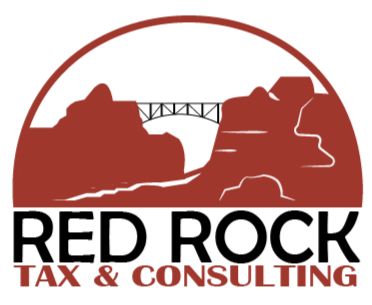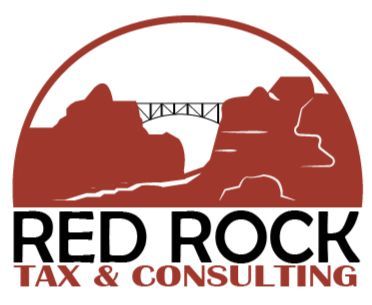From Rookie to Pro: A Step-by-Step Guide to Tackling Your First Business Tax Return

Are you a first-time business owner filled with excitement and a hint of nerves as you embark on your entrepreneurial journey? As exciting as it may be, one thing that may not be as thrilling is handling your business taxes. Filing your first business tax return may feel overwhelming and intimidating, but fear not, because we have you covered. In this blog post, we will provide you with a comprehensive guide on how to prepare for and tackle your first business tax return like a pro.
Understanding Business Taxes and Filing Deadlines
Before diving into the nitty-gritty of preparing your business tax return, it is essential to understand the basics. As a business owner, you are required to pay taxes on your business's profits and income. This tax is known as the business income tax. The amount you owe depends on the structure of your business (sole proprietorship, partnership, corporation) and your business's net income.
The first thing you need to do is determine your business's fiscal year, which is different from the calendar year. Most businesses have a fiscal year that runs from January 1st to December 31st, but for some, it may be a different 12-month period. Once you have determined your fiscal year, you need to know the deadlines for filing your taxes. For example, if your fiscal year is from January 1st to December 31st, your tax return is due on April 15th. It is essential to mark these deadlines and stay on top of them to avoid any penalties.
Keeping Accurate Records
Keeping accurate records is crucial when it comes to filing your business tax return. It not only helps you stay organized but also ensures that you are claiming all the deductions and credits you are eligible for, ultimately reducing your tax liability. Here are some tips to help you keep accurate records:
- Use accounting software: Accounting software such as QuickBooks or FreshBooks can make record-keeping a breeze. It allows you to track your income, expenses, and tax deductions in one place.
- Separate personal and business expenses: As a business owner, it is essential to keep your personal and business expenses separate. Mixing the two can make it challenging to track and categorize your expenses.
- Keep all receipts and invoices: It is crucial to keep physical or electronic copies of all your receipts and invoices as proof of your business expenses.
- Keep a mileage log: If you use your personal vehicle for business purposes, it is essential to keep a mileage log to track your business-related trips. This can help you claim a deduction for business mileage on your tax return.
Organizing Your Financial Statements
Now that you have accurate records of your business's income and expenses, the next step is to organize them into financial statements. The three main financial statements that you will need to include in your tax return are the income statement, balance sheet, and statement of cash flows. Here's what each statement includes:
- Income statement: This statement shows your business's revenues, expenses, and net income or loss. It helps determine your taxable income.
- Balance sheet: The balance sheet shows your business's assets, liabilities, and owner's equity at a specific point in time.
- Statement of cash flows: This statement shows where your business's cash is coming from (cash inflow) and where it is going (cash outflow). It includes operating, investing, and financing activities.
Choosing the Right Forms and Hiring a Tax Professional
One of the most crucial steps in preparing your first business tax return is choosing the right forms to fill out. The type of business structure you have will determine which form you need to file. Here are the most common forms used for business tax returns:
- Sole Proprietorship: Schedule C (Form 1040)
- Partnership: Form 1065
- Limited Liability Company (LLC): Form 1065 or Form 1120 (if you elect to be taxed as a corporation)
- Corporation: Form 1120
If you are unsure about which form to use, it is best to consult with a tax professional. Hiring a tax professional can save you time and stress, and ensure that your tax return is filed accurately. Additionally, they can also provide you with tax planning advice to help reduce your tax liability in the future.
Contact Our Team for Professional Tax Preparation in Hurricane, UT, and Lake Havasu City, AZ
Preparing your first business tax return can be daunting, but with the right guidance and assistance, you can tackle it with confidence. At Red Rock Tax & Consulting, we offer professional tax planning and preparation services for businesses in Lake Havasu City, AZ, and Hurricane, UT, and the surrounding areas.
Our experienced team can help you navigate the complexities of business taxes and ensure that your tax return is filed accurately and efficiently. Additionally, we also offer
small business accounting and
business brokerage services. Contact us at
(435) 635-2494 or
(928) 680-1444 to schedule a free consultation.
FAQs
-
What happens if I miss the tax filing deadline?
If you miss the deadline, you will be subject to penalties and interest charges, which can significantly increase your tax liability.
-
Can I deduct all of my business expenses?
Not all business expenses are tax-deductible. It is essential to keep accurate records and consult with a tax professional to determine which expenses are deductible.
-
What is the difference between a fiscal year and a calendar year?
A fiscal year is a 12-month period that a business uses for accounting and reporting purposes, while a calendar year is the twelve months of January to December.
-
What is the difference between a sole proprietorship and an LLC?
A sole proprietorship is a business structure where the owner and the business are considered the same entity, while an LLC is a separate legal entity from the owner.
-
What is a tax deduction?
A tax deduction reduces your taxable income, ultimately reducing your tax liability. It is an allowable expense that can be subtracted from your business's gross income.


RESOURCES
FINANCIAL CALCULATORS
COMPANY
Address:
4 South 2600 West STE 1 Hurricane, UT 84737
149 Paseo Del Sol Ave, Lake Havasu City, AZ 86403
Email:
info@redrocktax.com
Copyright © 2024 Red Rock Tax & Consulting, All Rights Reserved.


